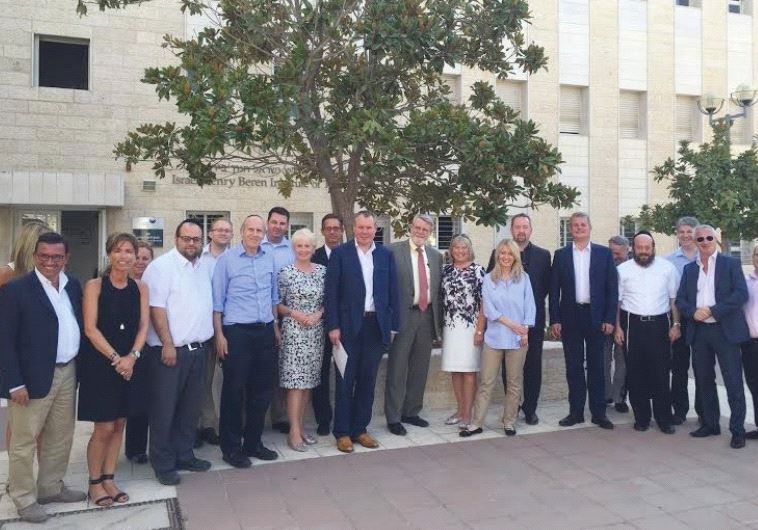Grapevine: UK politicians salute haredim in hi-tech
Members of the delegation were astounded with what the graduates managed to achieve and asked if the academic studies affected their haredi lifestyle.
 CONSERVATIVE FRIENDS of Israel at the Jerusalem College of Technology.
CONSERVATIVE FRIENDS of Israel at the Jerusalem College of Technology.